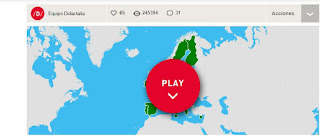HELLO again!!
In this Unit we are going to study the European Union but...
What countries belong to the European Union?
Let´s complete your notebook map playing with the following interactive map.
After studying the European Union countries you can label its capital cities.
Here you can find an interactive map with capital cities in spanish.
Remember you have a list in your notebook with all of them.
https://mapasinteractivos.didactalia.net/comunidad/mapasflashinteractivos/recurso/capitales-de-la-union-europea/a52ab2c2-b31b-4e47-a281-81c63659a3b4
You can use the following structure to practice with the interactive map
Here you can find an interactive map with capital cities in spanish.
Remember you have a list in your notebook with all of them.
https://mapasinteractivos.didactalia.net/comunidad/mapasflashinteractivos/recurso/capitales-de-la-union-europea/a52ab2c2-b31b-4e47-a281-81c63659a3b4
You can use the following structure to practice with the interactive map































